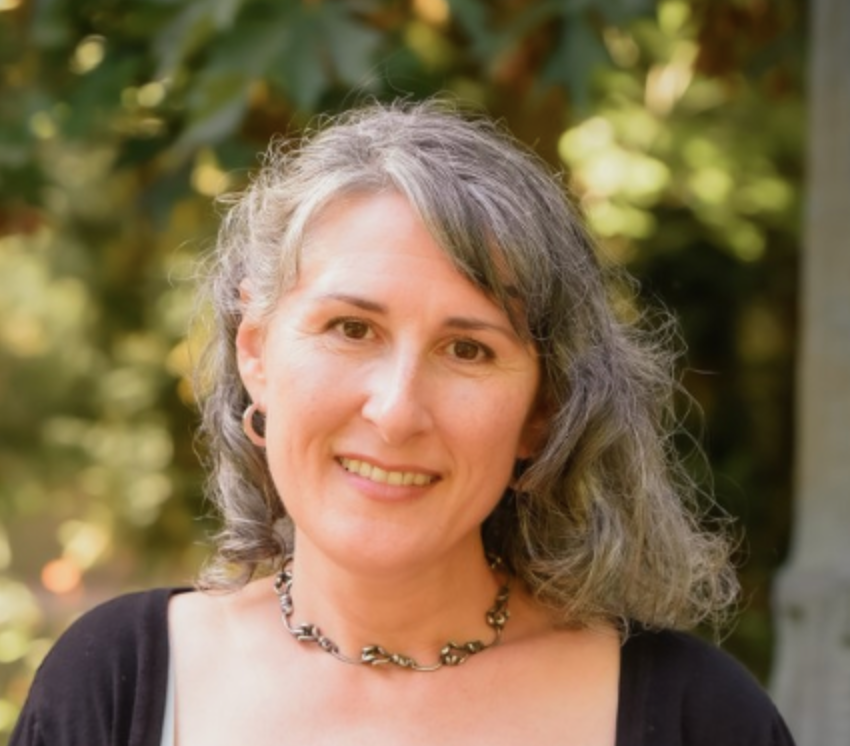
Sonya Remington Doucette and Heather Price
Climate Justice and Civic Engagement Across the Curriculum to Empower Climate Action and Address Climate Grief
About the authors
Sonya is a sustainability leader at Bellevue College (BC), where she is Chair of the Sustainability Curriculum Committee, the Sustainability Concentration Coordinator, and manager of the Climate Justice in the Curriculum Project. She is currently PI of a 3-year NSF IUSE grant that funds the C-JUSTICE project. She authored an introductory sustainability textbook Sustainable World: Approaches to Analyzing and Resolving Wicked Problems (2017, 2nd edition). Prior to BC, she was a Senior Lecturer in the School of Sustainability at Arizona State University (2010 – 2013). In addition to completing a textbook, she conducted sustainability education research at ASU (Connell, Remington-Doucette, & Armstrong 2012, JSE; Remington-Doucette et al 2013, IJSHE; Remington-Doucette & Musgrove 2015, IJSHE). One manuscript was highly commended as Outstanding Papers in the International Journal of Sustainability in Higher Education’s Annual Awards for Excellence. From 2008 – 2010, she was a post-doctoral teaching fellow in the Program on the Environment* at the University of Washington. (*now College of the Environment.) She began her academic sustainability career in 2007 when she became active in the Curriculum for the Bioregion (C4B) initiative at Evergreen State College. C4B seeks to infuse sustainability into all curricula, in all disciplines, at institutions of higher education in Washington State. She remains active and recently (2014) became a member of the regional steering committee for this successful, ongoing initiative.
Heather earned her PhD in Analytical and Environmental Chemistry studying the long-range transport and photochemistry of air pollution. Heather's postdoctoral atmospheric chemistry research was conducted with the Program on Climate Change at University of Washington, incorporating the isotopes of hydrogen into a global chemical transport model of the atmosphere. She is currently co-PI of a 3-year NSF IUSE grant that funds the C-JUSTICE project and chemistry professor at North Seattle College. Heather has developed a number of courses on climate change and climate justice: for undergraduate students at UW, a summer program for high school students, and continuing science education courses for elementary and 6-12 grade teachers. Her latest research and teaching focus is on faculty development workshops to help faculty incorporate climate justice with civic engagement into their existing STEM, arts, and humanities curriculum. Dr. Price is also on the leadership team of the Seattle 500 Women Scientists organization and is co-founder of the climate resources community hub, TalkClimate.org.
Chapter overview
Our chapter describes the Climate Justice Across the Curriculum program that is well established at multiple colleges and universities in Washington State and is actively expanding to colleges in Oregon, California and beyond. So far, faculty from over twenty five colleges and universities have participated in this faculty curriculum development program to create lessons that incorporate climate justice and civic engagements into their STEM, humanities, arts, business, allied health and other courses. Thousands of students have already benefited from the climate justice with civic engagement lessons that their professors created and taught in their classes.
When we teach our students about the climate crisis, many of them feel emotions such as anxiety, grief, fear, anger, and hopelessness. Taking action to address the climate crisis can counter these emotions. By leading with the social justice aspects of climate change and incorporating civic engagement into our courses, we can empower students with hope. Civic engagement involves collaboration with others to improve your community, through political or non-political means, and by anyone no matter their age or citizenship status. It involves actions as small as a social media posting or talking to a friend about a societal issue, to something much larger such as volunteering for a community organization. In our classrooms, civic engagement may not be taking action, but simply instilling in our students the knowledge (I know what to do and why), skill (I know how to do it), responsibility (I ought to do because only I can do), efficacy (I can do and it makes a difference), commitment (I must and will do), and values (I ought to do because it is important) which are all important qualities of engaged citizens (Wang and Jackson, 2005).
The Climate Justice for Civic Engagement Across the Curriculum project focuses on faculty professional development that provides intellectual and financial support, and space and time, for faculty to create and implement climate justice lessons that include a civic engagement component into their courses. Faculty come from a wide range of disciplines. The professional development experience involves an introduction to climate justice, interdisciplinary group brainstorming to develop initial lesson drafts, “experiencing” a climate justice lesson as an example to facilitate further collaborative lesson development and refinement, inclusion of positive stories of change and attention to the emotional impacts of climate learning, and draft lesson presentations with supportive feedback from colleagues. Faculty implement their lessons and submit them to a Climate Justice Curriculum Repository existing at both colleges, which now collectively contain over 75 lessons.
Faculty involved in our NSF grant work titled, Climate Justice in Undergraduate STEM Incorporating Civic Engagement, also publish their lesson modules at the Carlton College curriculum repository. We encourage faculty to use and modify the published lessons in their own classes.
Contact details
Heather and Sonya are interested in speaking to live audiences. You can contact them via their email.
Heather Price, PhD: heather.price@seattlecolleges.edu.
Sonya Doucette, PhD: sonya.doucette@bellevuecollege.edu.
Links to additional resources
Climate Justice in Undergraduate STEM Incorporating Civic Engagement (C-JUSTICE), the authors’ NSF research project.
The 2023 presentation at the American Geophysical Union conference on “Climate Justice Across the Curriculum: A Statewide College Faculty Curriculum Development Program in Washington State”.
“Hope is Not Optional: Managing Emotions for a Changing World” by Sonya Remington Doucette.
The 2023 article “Teaching STEM Through Climate Justice and Civic Engagement”.





